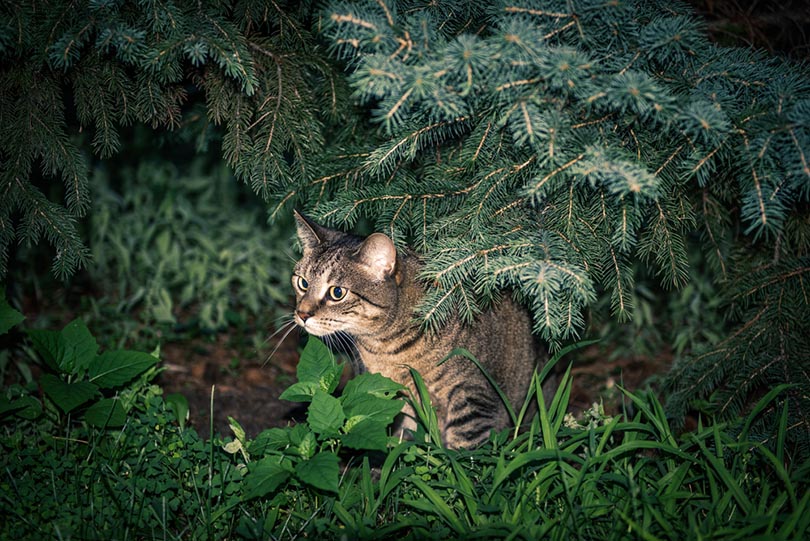Why Is My Cat Scared All of a Sudden? 7 Possible Reasons
Updated on
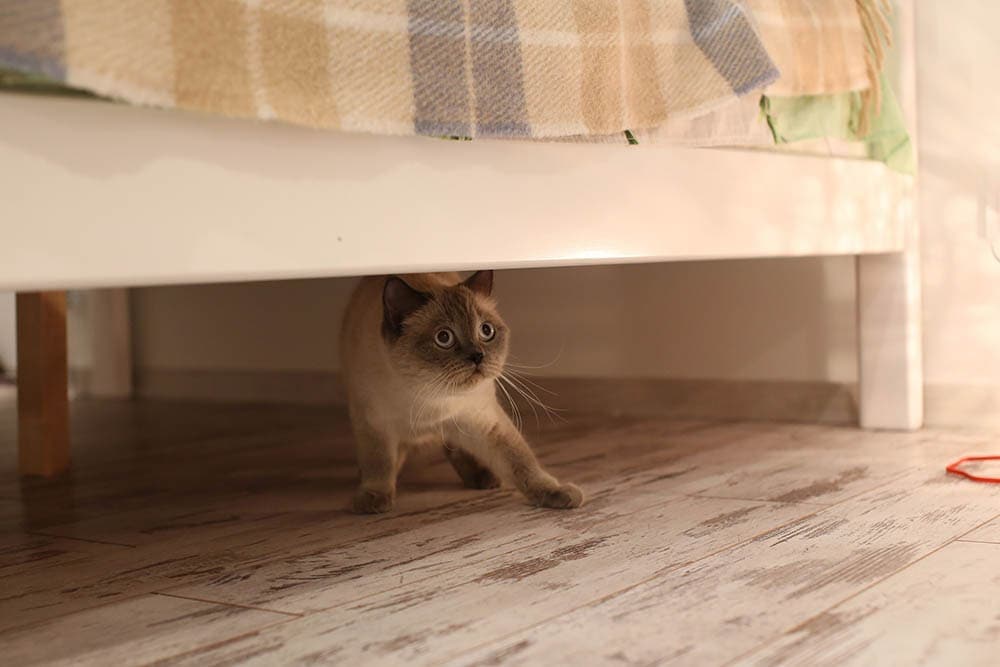
Even though they’re nature’s perfect killing machines, cats still get scared. Cats don’t show their fear like dogs, so it’s challenging to identify what’s causing the anxiety.
The best way to investigate is to work backward. Ask yourself what has changed recently that may be upsetting your cat. If you’re unsure, don’t fret. We’re listing seven possible reasons why your cat’s behavior has suddenly changed and what you can do to fix the problem. Let’s get started.
The 7 Reasons Why Your Cat Is Scared All of a Sudden
1. New Home
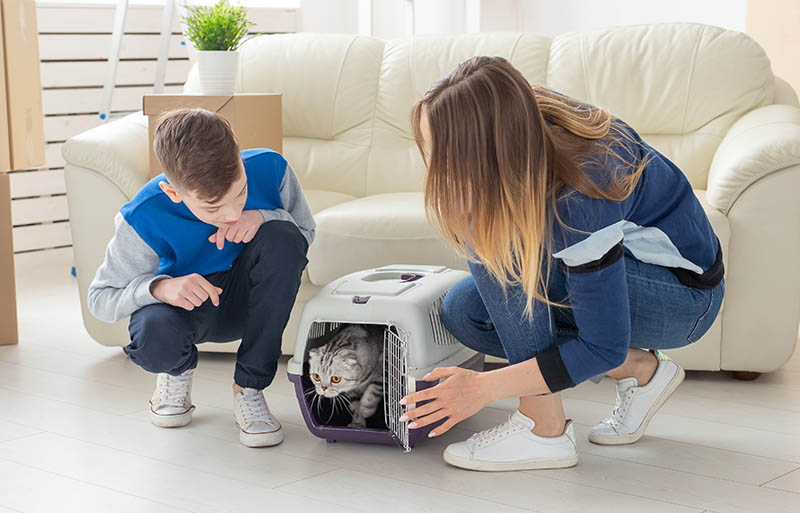
Moving into a new space is full of promise. Everything is new and exciting. But your cat probably doesn’t feel the same way. Cats are territorial creatures that like routine. Any change to their regular routine and territory can upset cats. The car ride alone is enough to stress out your cat.
You also have to consider the home itself. It could be something specific about the house that your cat doesn’t like, such as an odor or a next-door pet.
Clean the house thoroughly to remove any lingering odors from previous owners and pets. Provide extra litter boxes throughout the house so your cat doesn’t mark any furniture, rugs, or carpet. You also want to provide a cat space with cat trees, scratchers, and anything else to make your cat feel comfortable.
After you’ve done this, give your cat some time to adjust. If your cat is still acting scared, diffuse some Feliway throughout the house and offer your cat’s favorite food at mealtime. That way, your cat has something to look forward to.
2. New Pet

Many cat owners mistakenly introduce a new pet too soon with their cats. If you recently introduced a new pet to the home, this could contribute to your cat’s fear. In reality, it can take weeks before your cat is fully acclimated to its new roommate, especially with dogs.
Limit your cat’s interaction with the new pet. Provide a safe space for your cat that the new pet can’t access. If you can’t close off an entire room, offer cat trees and shelves so your cat can climb to a safe space.
Where you place the cat tree matters as well. Your cat may use the cat tree in one corner but not the other. Move your cat’s tree around and see what your cat prefers.
3. New Person or Baby

Have you recently had a baby or acquired a new roommate? Cats often become skittish and hide with new people they don’t trust. But in the worst-case scenario, a new person can spark your cat’s territorial instinct and cause unwanted behavior like hiding, marking, or aggressive behavior. This is especially true with children since they can be rambunctious like dogs.
Limit your cat’s interactions with the new person or baby. If you can, keep something with the new person’s scent around your cat so it can investigate without feeling intimidated. When your cat does interact with the new person, offer treats and pets. Make the experience a positive one.
This is another situation where you should evaluate your cat’s corner and ensure it has enough vertical space to jump if it needs to escape.
4. Predators
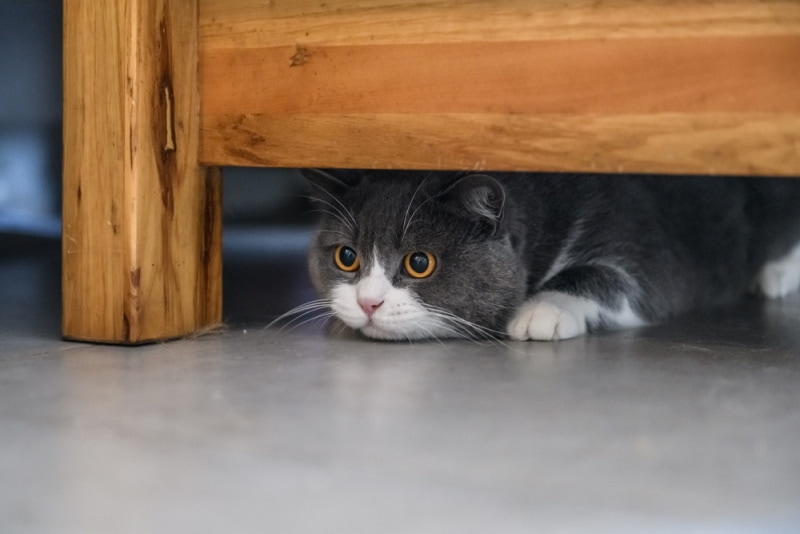
You may not think your cat has a predator with its sharp claws and teeth, but domestic cats are both predators and prey. A nearby predator like a dog, fox, coyote, snake, hawk, raccoon or another cat can cause your cat to feel unsafe.
If your cat goes indoors and outdoors, keep it inside if your cat’s not already hiding inside. This will keep it safe from outdoor predators and tell you if the fear comes from something outside or inside. Double-check your doors and windows to ensure nothing or no one can get in.
5. Loud Noises

Cats have impeccable hearing, so loud noises can be uncomfortable for your cat. Loud noises like drums, music, weed eaters, lawnmowers, and baby cries can send your cat hiding.
Provide a quiet space for your cat. The regular kitty corner may not work if the loud noise is nearby, so let your cat hide where it feels safe. The only exception is the litter box. If your cat is hiding in the litter box, this is a sign of stress or fear. Try to coax your cat into a comfortable place and not in its mess.
6. Age-Related Health Changes

Senior cats undergo many bodily changes, so your cat may not function as well as it used to. For instance, cats with dementia tend to wander, appear anxious, or stop eating. They also hide when they feel sick, so pain and illness can cause sudden behavior changes.
Don’t hesitate to have your cat examined. A veterinarian can help pinpoint the source of the problem so you can provide comfort for your kitty.
7. Mistreatment
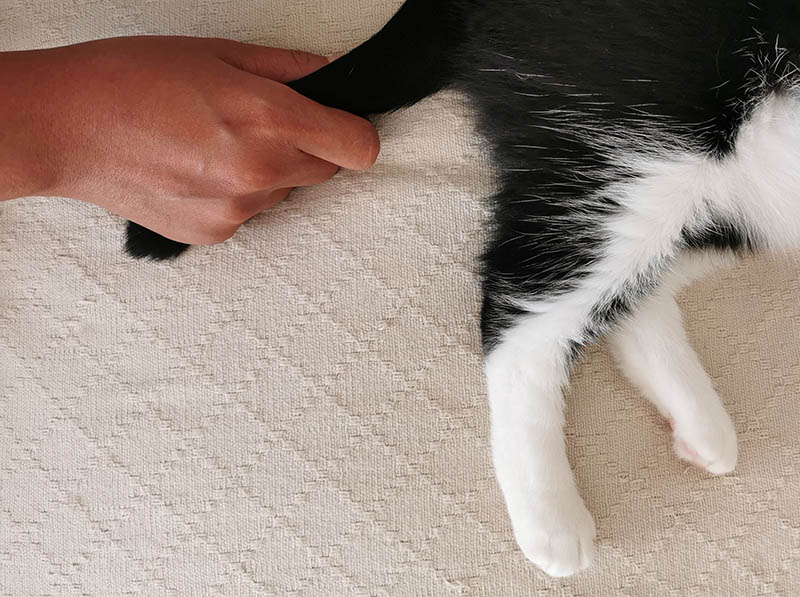
Unfortunately, we don’t like to think about our pets being mistreated, but it happens. New roommates, terrible pet sitters, children, or a horrible vet experience can cause a sudden behavior change in your cat.
Signs of abuse can be:
- Flinching at human touch
- Avoiding human contact
- Afraid of hands
- Unexplained injuries
- Hiding from a specific person
- Unprovoked aggression
- Overly submissive (lays on floor, urinates, tucked tail, etc.)
Keep in mind, we’re not saying you should accuse your new roommate or vet office of abuse. But it’s wise to pay attention to these signs and handle the situation promptly if you believe abuse is the cause.
Pay attention to how your cat reacts around certain people and remove your cat from the abuse if necessary. If it’s a child mishandling your cat, educate the child on how to properly handle and respect animals.
Contact your local animal control or veterinary office immediately if you feel an animal other than your own is being abused.
Conclusion
Handling a scared cat is never easy. Cats are hard to read and don’t tell us how they feel in the best way. But it’s essential to take your cat’s feelings seriously. The best way to ensure your cat feels safe is to provide a welcoming and warm space for your kitty. Ask yourself, if you felt scared, what would help you?
Don’t hesitate to handle the situation if you think abuse or health issues are why your cat is acting differently. Call your local vet or shelter for any questions if you feel you’re unsure.
See Also:
- Why Is My Cat So Jumpy All of a Sudden? 9 Vet Reviewed Reasons
- Are Cats Scared of the Dark? Vet Reviewed Facts & FAQ
Featured Image Credit: Zossia, Shutterstock





